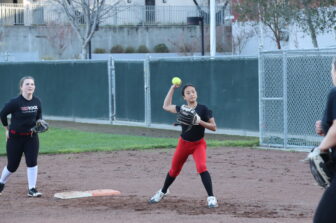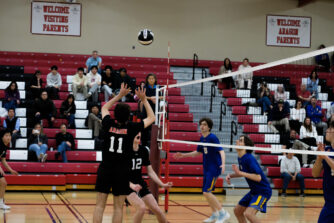When Pete Carroll left the University of Southern California (USC) coaching position to become the head coach of the Seattle Seahawks in 2010, many were confused about his decision. The USC football team, which Carroll had been the head coach of, was the most dominant team in all of college football, reaching back-to-back championship games and bringing home the 2005 trophy. The team produced several stars, such as Reggie Bush and Carson Palmer, leading to a reputation for developing athletes, especially in football. Because of its commitment to athletic success, many high schoolers, especially athletes, were attracted to USC. After so much success, many wondered why Carroll would leave such a program that he built into a national powerhouse. However, it was later revealed that the athletic program had allowed Bush to accept gifts from agents, leading to athletic sanctions against the university, including the removal of its 2005 National Championship.
USC would fit under the category of a jock school, but does that automatically denote it as a school that values athletics over academics? A strong athletic culture, like the one at USC, may positively impact students who are not athletes.
“A lot of the social life revolved around the football games on Saturdays. There would be parties before the games and parties after,” says English teacher Victoria Daniel, reflecting on her time at University of California, Berkeley. “I did not attend all the sports, by any means, I went to a few football games. But, I would say it enriched my personal experience there. I would not say it did not affect my learning experience in anyway.”
Even though UC Berkeley may not be considered a jock school due to its poor athletic reputation, a school’s athletic culture, whether big or small, can be beneficial in helping diversify one’s experience in the school outside of the classroom.
Similarly, at Aragon, athletic success is prominent in many sports, from football in the fall to baseball in the spring. While it may not be an athletic powerhouse, Aragon has maintained its reputation as being one of the top athletic programs within the school district.
While there may be several benefits of a jock school, such as the enrichment of one’s experience at the educational institution, there are often just about as many cons as are there pros.
“A jock school would prioritize athletes and sports over academics,” says Daniel.
Furthermore, jock schools are often apathetic towards events outside its main focus of athletic success. An attitude that resembles a stereotypical jock school approach can sometimes lead to events like the USC athletic scandal in which numerous athletes illegally accepted gifts from agents or the Penn State sex scandal, where former assistant coach Jerry Sandusky molested several young boys, and got away with his crime for decades.
At Aragon, while athletics are important, it is clear in the minds of those on campus that it does not meet the requirements of being labeled a jock school.
“I know that athletics are important, says junior tennis player David Wu. “But I wouldn’t go so far as calling it as a jock school because there are plenty of other people that are interested in non-athletic things, such as chess, science and math, so it is a good and healthy mix.”
Even in the students’ minds, athletics are not the number one priority. Some people go to school to play sports with the purpose of increasing their chances of making it to the pros. However, most students come to school to learn. The inclusion of both students and athletes makes for a better high school experience for all.
“I see it as athletics are a part of our culture, but I would not define it as a jock school, as I would say a jock school is one that would have a negative connotation, whereas I would see Aragon as one that has academics first,” says history teacher and former girls soccer coach William Colglazier. “Athletics are important, as I was the girls soccer coach for five years and it was extremely important to me, but school was more important and I think that’s part of the way teachers see it here and I hope students see it here.”
The blend of athletic culture and academic focus on campus has provided Aragon with a diverse and unique community, something the students and the teachers should take full pride in.



